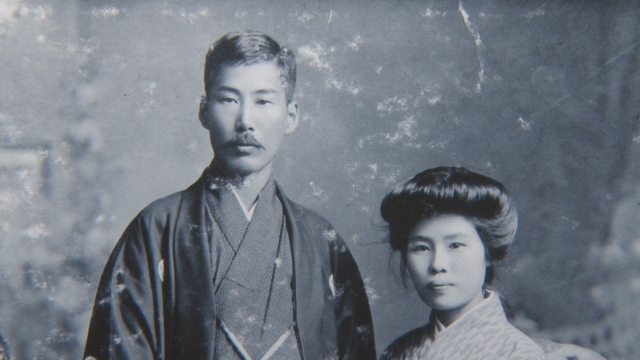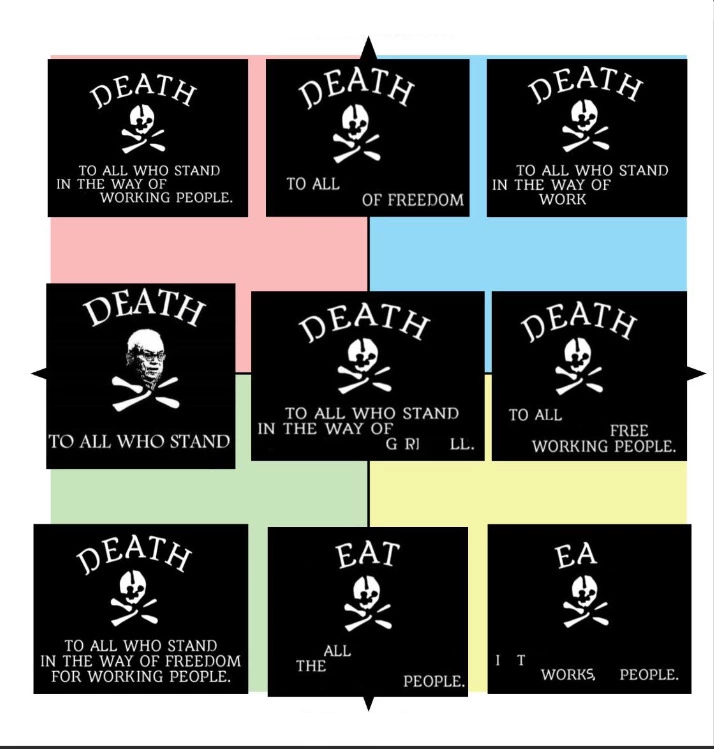On this day in 1911, the Japanese government executed twelve anarchists, including radical journalists Kanno Sugako and Kōtoku Shūsui (shown), as part of a widespread crackdown on left-wing activism. Among those executed were Uchiyama Gudō, a Buddhist priest and socialist who spoke out against the Meiji government for its imperialism and advocated for conscripted soldiers to desert en masse.
The pretext for this crackdown was the "High Treason Incident", a plot to assassinate the Emperor of Japan. The incident began when police searched the room of Miyashita Takichi, a young lumbermill employee, and found materials which could be used to construct bombs, concluding that there was a broader conspiracy to harm the imperial family.
On the basis of this plot, the Japanese government rounded up leftist activists from all over the country. 24 of the 26 defendants actually brought to trial were sentenced to death, despite the evidence against nearly all of them being circumstantial.
Among those executed anarcha-feminist journalist Kanno Sugako (some sources say she was executed on January 25th). At the age of 29, Kanno became the first woman with the status of political prisoner to be executed in the history of modern Japan.
Prior to his execution, Kōtoku Shūsui etched this message on the wall of his cell: "How has it come about that I have committed this grave crime? Today my trial is hidden from outside observers and I have even less liberty than previously to speak about these events. Perhaps in 100 years someone will speak out about them on my behalf."
Megathreads and spaces to hang out:
- 📀 Come listen to music and Watch movies with your fellow Hexbears nerd, in Cy.tube
- 💖 Come talk in the New Weekly Queer thread
- 🔥 Read and talk about a current topics in the News Megathread
- 🐱👤 Come talk in the New Weekly PoC thread
reminders:
- 💚 You nerds can join specific comms to see posts about all sorts of topics
- 💙 Hexbear’s algorithm prioritizes comments over upbears
- 💜 Sorting by new you nerd
- 🌈 If you ever want to make your own megathread, you can reserve a spot here nerd
- 🐶 Join the unofficial Hexbear-adjacent Mastodon instance toots.matapacos.dog
Links To Resources (Aid and Theory):
Aid:
Theory:


(CW: Racism on my part) Eh, I'm beginning to realise I may have learned and retained some really racist views. Reading this historical note about pre-WW2 Japan I'm realizing the Japanese didn't have a slave/peasant mindset that didn't even consider revolutionary thought. I was still thinking the Japanese had a subservient peasant farmer thought process. I've learned and retained a lot of trash views.
Oh yeah, no. The Tokugawa bakufu was a viciously repressive government that used violence and all kinds of means of control to maintain the rigid social and economic order. One of the first things Tokugawa did to consolidate power was send his troops literally house to house seizing weapons of every kind throughout the country. If you tried to fight they'd kill you. If they thought you were hiding weapons they'd kill you. Japan had the finest guns in the world at the end of the hundred years of war. Tokugawa broke up the industry. He did the Sun King thing where nobles had to spend part of every year or whatever in his court to keep them poor (they had to spend money maintaining a household far from their lands, everyone needed spiffy clothes, things like that) and separated from their neighbors,. Put down all kinds of religious and peasant revolts.
Japan didn't get that way, or stay that way, without a lot of people putting in a lot of hard work to keep it that way.
Then the Meiji restoration happens, then Japanese fascism. It's been a pretty hostile environment for revolutionary movements for like 500 years, but people kept trucking along. There are lots of really radical Japanese revolts and revolutionary movements across the centuries. The Ikko Ikki are fun; Armies of kung fu style monks and peasants leading semi-religious revolts against the corruptions and outright violence of the local lords. Sometimes they made a real go of it and established little nations in defensible areas that held out for years or decades. I think the radical egalitarianism that sometimes crops up when people convert to christianity but don't understand they're not supposed to actually do the stuff in the bible happened in some places, too.